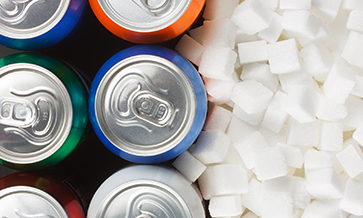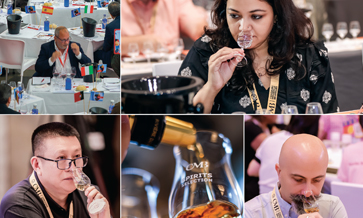Material suppliers to beer manufacturers in India offer an indication of the state of the health of the industry. We connected with the Director of Om Brewtech, Sanjiv Nagpal, to learn more about his journey, and to find out what’s brewing in the years ahead. Excerpts:
How can you describe the Indian beer industry’s growth and market size today?
There are more than 270 micro- and mid-size breweries in India now. Changing lifestyles, urbanisation, and higher disposable income have all contributed to the significant growth in the craft beer industry in recent years, making it the fastest- growing segment in the beverage alcohol industry in India.
Specifically, the craft beer segment has seen a lot of traction in the past few years. Consumers are seeking out locally brewed beers that offer unique varieties and taste profiles.
What are the biggest business trends of the last 5 years? How are breweries catering to it?
We have witnessed a change in the beer industry dynamics in India, all owing to global trends and local influences, government support, and the revival of craftsmanship in beer production. This changing dynamic has enabled ‘beer’ to evolve beyond mass-scale breweries and create a comfortable space in the ever-growing craft brewing market.
Five years ago, there was a dominance of wheat beer in the market. While this remains so, we’re now seeing brewers increasingly push the envelope with different beer styles and flavour profiles.
How would you describe the craft and micro-brewery movement in India? How would compare the growth of giant breweries?
Craft breweries are catering to local taste buds. The micro-brewery and craft community is still small and tight knit. Brewers often share ideas and are consistently experimenting with new and traditional European styles of beer.
Giant breweries are well-established, and their brands continue to impact growth and expansion.
Could you tell us briefly about Om Brewtech and where it stands today?
Om Brewtech shares a very special timeline with the introduction of craft beer and micro-breweries in India. Having entered the market a little over a decade ago, we have witnessed the initial growth, challenges, trappings, and stability alongside pioneers in this industry.
We have evolved alongside them, while keeping a one-point focus all along: to be distributors of global premium raw materials in the craft brewing space in India.
What are the main processing products that you supply to the brewing industry?
We are the sole distributors of premium global raw materials, especially Weyermann Specialty Malts and Hopsteiner Hops. Our portfolio also includes a range of different products, including yeasts, glasses, glass washers and others.
What are the main challenges Indian brewers face? How does Om Brewtech partner with them to overcome these?
One of the main challenges is the access to high-quality brewing ingredients. These raw materials need to withstand Indian climate constraints and storage conditions, and still surpass international quality standards.
Brewers also need to adhere to these standards while facing the price pressures of the Indian market. Our customers know that they can truly depend on us when it comes to superior quality raw materials and uninterrupted supply. We cater to clients’ requests for all varieties and quantities – be it a single bag or a container.
As the sole distributor for Hopsteiner in India, what can you say about its speciality hops? What’s in it for Indian brewers?
For six generations, Hopsteiner has consistently delivered the promise of supplying farm-fresh hops to clients across the globe. With over 170 years of hop- growing expertise, quality stands at the forefront of Hopsteiner’s promise to its global customers.
Their products include a wide range of hop varieties, hop oils, hop extracts, experimental hops, and more.
As a leading grower and supplier of hops from the US, Germany, England, the Czech Republic, Ukraine, China and Spain, what role does Hopsteiner play in the Indian beer market?
Hopsteiner made its entry into the Indian market 3 years back. Our clients in the Indian beer market have been very impressed with Hopsteiner hops and consistency in quality. Their hop growing experience translates into growing sales with every passing year.
What is your portfolio from Weyermann Specialty Malts in Bamberg (Germany)? What is the difference between malts and malt extracts in their applications?
We have over 80 varieties of malt and malt-based products. Both malts and liquid malt extracts (LMEs) are extremely popular products in our portfolio. LMEs have wide a variety of applications, and their ease of usability is the most popular.
The first of the four main applications is to get hobby brewers hooked on to brewing as it takes out the hard labour and expensive equipment needed to brew beer.
Secondly, if you already have a brewhouse but have a limit on your lautering capabilities and would like to brew a strong beer, you can add LME to your original brew to spike up original gravity.
The third application is yeast propagation as it is a very safe way of a wort giving all the nutrition to the yeast propagator.
Lastly, for bottle conditioning, if you need to add wort to get the correct CO2 levels into capped bottles, LMEs are a natural and effective way of doing it.
With LMEs, you can experiment with creativity as the entire range can be blended to create your own beer recipe. With the use of LMEs, expect colour enhancements and corrections, aroma enhancements, and defined flavour profiling.
What are the different malts that Weyermann offers to the Indian brewery and distillery sectors?
In our portfolio, we have all major varieties of malts, including base, specialty malts and LMEs. Our customers have access to all Weyermann products. However, we regularly have anywhere between 50 varieties of malts that are preferred by Indian brewers and distillers. We often take customised orders for rarer varieties not commonly sought after on a regular basis.
What advantage(s) do organic wheat, rye and barley malts offer to brewers and distillers?
Organic malts are fast becoming popular in the Indian craft brewing space as the emphasis on pesticide and chemical-free grains continue to gain momentum. Weyermann’s control body, Kiwa BCS Öko-Garantie (Nuremberg), checks and confirms conformity with EU-Öko VO requirements.
Other organic associations, such as Bioland and Demeter, also certify Weyermann products on an annual basis. All Weyermann’s malts and malt-based products are free of genetically modified organisms.
What are Weyermann’s speciality malts about?
Weyermann Specialty Malts are extremely sought after in India, mainly for the quality and impact they have on the finished beer. From colour to aroma and taste, we can undoubtedly claim that nothing comes close to the standard that Weyermann has to offer.
Weyermann roasted malts are special because of the uniformity in the roasting of the grain – they are drum-roasted, giving each grain uniformity in roasting. This accounts for improved flavour, stability and enhancement in colour, be it chocolate, caramel or roasted specialty malts.
Based on your experience so far, what are the emerging consumer trends in Indian beers?
While the Indian palette is evolving and has become more experimental in recent times, the Indian beer drinker tends to have a lower tolerance for bitterness in beers. Also, Indian consumers love strong beers. Therefore, we tend to see an emphasis on aroma and taste amongst beer drinkers in India.
Have a query? Want more information? Write to info@ombrewtech.com.














